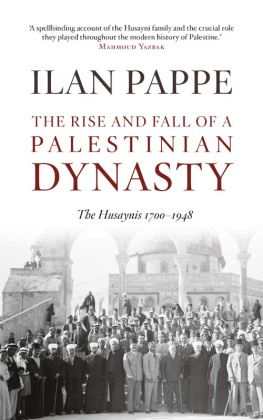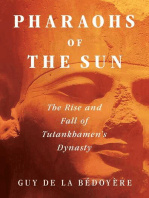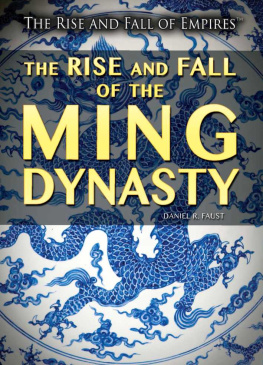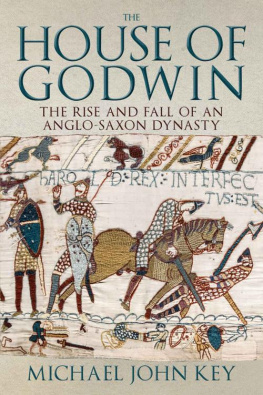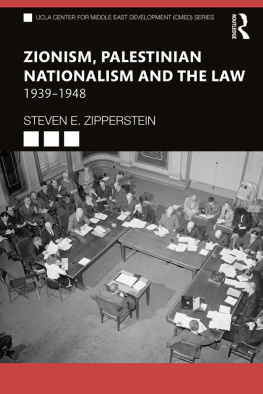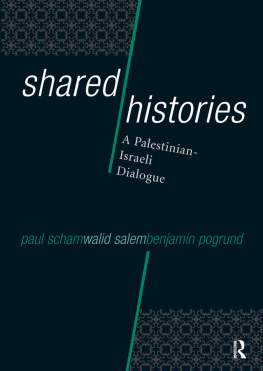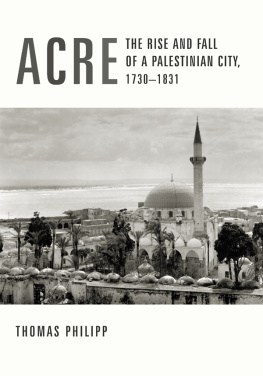Family - The rise and fall of a Palestinian dynasty the Husaynis, 1700-1948
Here you can read online Family - The rise and fall of a Palestinian dynasty the Husaynis, 1700-1948 full text of the book (entire story) in english for free. Download pdf and epub, get meaning, cover and reviews about this ebook. City: London;Israel;Palestine, year: 2017, publisher: Saqi, genre: Home and family. Description of the work, (preface) as well as reviews are available. Best literature library LitArk.com created for fans of good reading and offers a wide selection of genres:
Romance novel
Science fiction
Adventure
Detective
Science
History
Home and family
Prose
Art
Politics
Computer
Non-fiction
Religion
Business
Children
Humor
Choose a favorite category and find really read worthwhile books. Enjoy immersion in the world of imagination, feel the emotions of the characters or learn something new for yourself, make an fascinating discovery.
- Book:The rise and fall of a Palestinian dynasty the Husaynis, 1700-1948
- Author:
- Publisher:Saqi
- Genre:
- Year:2017
- City:London;Israel;Palestine
- Rating:3 / 5
- Favourites:Add to favourites
- Your mark:
- 60
- 1
- 2
- 3
- 4
- 5
The rise and fall of a Palestinian dynasty the Husaynis, 1700-1948: summary, description and annotation
We offer to read an annotation, description, summary or preface (depends on what the author of the book "The rise and fall of a Palestinian dynasty the Husaynis, 1700-1948" wrote himself). If you haven't found the necessary information about the book — write in the comments, we will try to find it.
Family: author's other books
Who wrote The rise and fall of a Palestinian dynasty the Husaynis, 1700-1948? Find out the surname, the name of the author of the book and a list of all author's works by series.
The rise and fall of a Palestinian dynasty the Husaynis, 1700-1948 — read online for free the complete book (whole text) full work
Below is the text of the book, divided by pages. System saving the place of the last page read, allows you to conveniently read the book "The rise and fall of a Palestinian dynasty the Husaynis, 1700-1948" online for free, without having to search again every time where you left off. Put a bookmark, and you can go to the page where you finished reading at any time.
Font size:
Interval:
Bookmark:
Azulat Haaretz: HaHusaynim Biographia Politit
by the Bialik Institute, Jerusalem, in 2002
This eBook edition published 2011
Copyright Ilan Pappe 2010 and 2011
Translation Yael Lotan 2010 and 2011
This book is sold subject to the condition that it shall not, by way of trade or otherwise, be lent, re-sold, hired out, or otherwise circulated without the publishers prior consent in any form of binding or cover other than that in which it is published and without a similar condition including this condition being imposed on the subsequent purchaser.
A full CIP record for this book is available from the Library of Congress.
www.saqibooks.com
This book is a political biography of the Husaynis, the leading clan in Palestine for many years. The family appears here as an informal political organization whose activities have dominated Palestines political history for almost 250 years.
Although historians have followed the trajectories of such elites quite successfully in the past, they have never focused on one particular family. This biography of the Husaynis is inspired by, but does not reflect, the new scholarly focus on the Middle Eastern family and its place in the local society.
Since this book focuses on elite history, it therefore does not examine the familys internal dynamics, structure, rivalries and other features that characterize social research on the family in Middle Eastern history. These are all worthy subjects that will surely be explored by others in the future. The purpose here, however, is to analyze this Palestinian family, the Husaynis, as the most significant informal political association prior to the appearance of national movements and political parties a political organization whose narrative is representative of Palestine and the Palestinians over a period of two and a half centuries.
The family became an affiliation, and its name allowed individuals to wield influence and establish leading positions in their local and later national society. All the positions that could affect society in Jerusalem and eventually in Palestine as a whole could only be obtained through the familys power base. As such, its members are considered here according to their political weight inside and outside the family. The central figures of this narrative are those individuals who held official and unofficial positions as the heads of the family. Only a few Husaynis who were less politically significant are mentioned (for instance, poets, writers and successful businessmen). This leaves, of course, much research to be done in order to achieve a more focused view on the social history of the family.
A political biography of a large family offers a historical perspective with many advantages for writing a fresh historiography of Palestine. It enables historians to detect patterns of continuity over fault lines that, in hegemonic narratives of Palestine, seem decisively to divide the countrys history into modern and pre-modern periods or Zionist and pre-Zionist histories. The familys political history is one way, by no means the only one, of telling the story of the continued human and cultural presence in the land of Palestine. By focusing on the Husaynis throughout their transformation from a provincial Ottoman elite into the leadership of a national movement, this biography is, I hope, a constructive way to demonstrate how Palestinian society existed and developed before the Zionist settlement or the British occupation began.
Which brings me to the second principal motivation for writing this book. I wanted to tell the story of Palestine through the history of its leading family as a way to correct the common so-called truisms and to challenge some of the conventional mythology about its past. There is no need to elaborate here on why Palestines past is relevant to the contemporary Middle East and beyond, but it is still necessary to gain a better understanding of this history.
By studying the Husaynis, one recognizes that Palestine was never an empty territory waiting for a landless people to inhabit it. Palestinian and other historiographies already show that this land had long had a society and an economy. This book hopes to complement such historiographies by humanizing a landscape described by travelers such as Mark Twain as arid and uninhabited. The Husaynis continuous presence at the top of a complex social structure in Jerusalem throughout Ottoman rule (15171917) attests to the falsity of the common view of Palestine on the eve of Zionist settlement (1882).
A third reason for choosing the Husaynis as the focus of this narrative was their leading role in the Palestinian national movement from its inception around 1908 until the end of the British Mandate in 1948. By looking at the family, I hoped to gain much greater insight into the Palestinian struggle after the country was colonized by the Zionist movement and occupied by the British Empire. The familys dominant political role in Mandatory Palestine forms a link in a continuum stretching back to the early Ottoman years. From the Husaynis perspective, one can better comprehend how the Palestinian political elite regarded the British presence and the Zionist movement: this point of view highlights the Palestinian predicament and failure, and consequently the tragic catastrophe of the 1948 Nakbah.
Finally, this book is specifically geared towards a Western readership. It was originally written in Hebrew in an attempt to challenge hegemonic IsraeliJewish perceptions of the countrys history. In contemporary Israel, pre-1882 Palestine is still commonly viewed as having been an uninhabited land that was developed only when Zionism, and with it Western modernity, reached its shores. Moreover, Palestinian political life after 1918 has been portrayed in both scholarly and popular literature as that of primitive tribesman, fanatic Muslims and hateful sheikhs. The text in Hebrew attempted to humanize, not idealize, the Husaynis, both because of their paramount position and because they are relatively well-known (due to the accusation that al-Hajj Amin was allied with the Nazis in the Second World War, and more recently because of the politics of Faysal al-Husayni).
In the West, and particularly in the US, similar views reign, and thus similar attempts are required to redress a biased and hostile image of Palestine and the Palestinians. This seemed to me an especially urgent task after 11 September 2001 and the second Intifada.
Hopefully, other more scholarly benefits will emerge from this work as well. One such byproduct, but by no means its principal objective, is that it is among the few histories of Arab Jerusalem that cover both the Ottoman period and the mandatory era. There are focused monographs on Ottoman Jerusalem and a very few others on post-1918 Jerusalem, but there are hardly any continuous urban histories of the city.
Font size:
Interval:
Bookmark:
Similar books «The rise and fall of a Palestinian dynasty the Husaynis, 1700-1948»
Look at similar books to The rise and fall of a Palestinian dynasty the Husaynis, 1700-1948. We have selected literature similar in name and meaning in the hope of providing readers with more options to find new, interesting, not yet read works.
Discussion, reviews of the book The rise and fall of a Palestinian dynasty the Husaynis, 1700-1948 and just readers' own opinions. Leave your comments, write what you think about the work, its meaning or the main characters. Specify what exactly you liked and what you didn't like, and why you think so.

